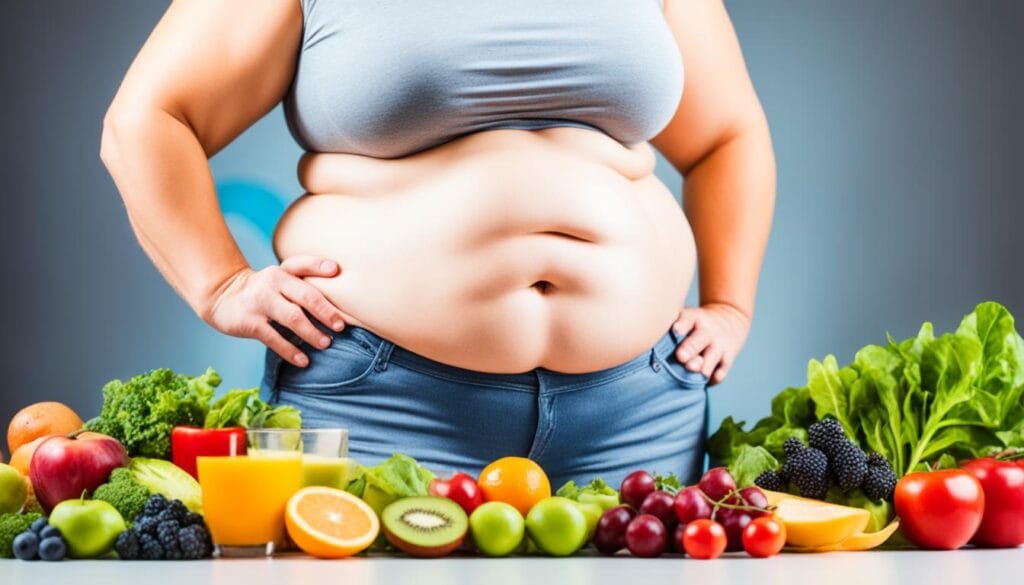
Quick Summary for Busy Readers
Intermittent fasting (IF) involves cycling between periods of eating and fasting. It’s known for benefits like weight loss, improved metabolism, and better mental clarity. To start, choose a method (e.g., 16/8), gradually increase fasting periods, and stay hydrated.
Intermittent fasting has become a popular health trend, promising a range of benefits from weight loss to improved metabolic health. But with so many methods and conflicting information, starting can be daunting. This guide will break down everything you need to know about intermittent fasting, its benefits, risks, and practical tips on how to start.
What is Intermittent Fasting?
Intermittent fasting (IF) is an eating pattern that cycles between periods of fasting and eating.
Unlike traditional diets, it doesn’t specify which foods to eat but when to eat them. Common methods include the 16/8 method, the 5:2 diet, and the eat-stop-eat approach.
Types of Intermittent Fasting
16/8 Method
The 16/8 method is when you don’t eat for 16 hours and then eat all your meals within an 8-hour window each day. So like, you might skip breakfast, have your first meal at noon, and finish eating by 8 PM. Then you fast overnight and through the morning. You can drink water, black coffee, or tea during the fasting hours. It’s supposed to help with weight loss and other health stuff. Some people find it easier than other diets since you’re not counting calories, just watching when you eat. But it’s not for everyone and you should probably check with a doctor before trying it.
5:2 Diet
5:2 diet is like, you eat normal for 5 days of the week, then on the other 2 days you barely eat anything. On those 2 “fasting” days, you’re supposed to only have like 500-600 calories, which is basically nothing.
It’s called 5:2 ’cause of the 5 normal days and 2 low-calorie days. Some people do it Monday and Thursday, but you can pick whatever days work for you. The idea is that it’s easier to stick to than dieting all the time, and it’s supposed to help you lose weight and maybe have some other health benefits.
People like it ’cause you don’t have to watch what you eat most of the time, just those 2 days. But man, those fasting days can be rough. You’re basically just having a tiny lunch and dinner. Some folks get hangry or have trouble focusing.
It’s not for everyone though. If you’re pregnant, have health issues, or take certain meds, it might not be safe. Plus, some people end up binging on their normal days, which kind of defeats the purpose. But yeah, that’s the basic idea of the 5:2 diet.
Eat-Stop-Eat
Eat-Stop-Eat is this fasting thing where you basically don’t eat for a full 24 hours once or twice a week. It’s pretty intense.
You eat normally most of the time, but then once or twice a week, you just… stop. Like, you finish dinner one night, and then you don’t eat again until dinner the next day. That’s a full 24 hours without food. You can drink water, coffee, or other zero-calorie drinks, but that’s it.
The idea is that you’re cutting out a bunch of calories without having to think about it every day. Some people say it helps them lose weight and gives their body a break from digesting all the time.
But let’s be real, not eating for a whole day is tough. You might get cranky, tired, or just really, really hungry. And when you start eating again, you gotten be careful not to go crazy and eat everything in sight.
It’s not for everyone, that’s for sure. If you’ve got health issues or you’re the type who gets hangry easily, it might not be your thing. Plus, you got to be careful about nutrition and making sure you’re still getting enough food overall.
Some folks swear by it, but others find it too hard to stick with. It’s one of those things you’d probably want to talk to a doctor about before trying.
Benefits of Intermittent Fasting
A. Weight Loss
- Can help drop pounds without strict calorie counting
- Simpler than many other diet plans
B. Improved Energy and Focus
- Some report feeling more energetic
- May enhance mental clarity
C. Potential Health Benefits
- Possible heart health improvements
- Some studies suggest increased longevity
- Might help with blood sugar control
D. Brain Health
- Potential cognitive benefits
- May help keep the brain sharp with age
Risks and Considerations
A. Physical Discomfort
- Hunger pangs and irritability (“hangry”)
- Possible headaches and mood swings
B. Eating Behavior Concerns
- Risk of binge eating during eating windows
- Might develop an unhealthy relationship with food
C. Social Challenges
- Can be difficult to explain to friends and family
- May interfere with social eating situations
D. Health Considerations
- Need to consult a doctor, especially if you have existing health issues
- Can affect blood sugar levels (important for diabetics)
- Possible hormonal effects, especially in women
- Not recommended during pregnancy or breastfeeding
E. Mental Health
- Potential trigger for those with a history of eating disorders
- May cause stress or anxiety around eating
F. Individual Variations
- Not suitable for everyone – some people feel unwell without regular meals
- Importance of listening to your body
G. Implementation
- Need to ease into the practice gradually
- Importance of maintaining proper nutrition
How to Start Intermittent Fasting
- Choose a Method: Start with a manageable fasting period, like the 16/8
method. - Gradually Increase Fasting Periods: Extend fasting windows as your body
adjusts. - Stay Hydrated: Drink plenty of water during fasting periods.
- Eat Nutrient-Dense Foods: Focus on whole, unprocessed foods during eating
windows. - Listen to Your Body: Adjust based on how you feel
Tips For Success
- Start slow. Maybe skip breakfast a couple times a week and see how you feel.
- Stay hydrated. Drink lots of water, especially when you’re fasting.
- Pick a schedule that fits your life. If you’re a night owl, maybe the 16/8 method with a later eating window works better.
- Plan your meals. When you do eat, make sure it’s nutritious stuff, not just junk food.
- Keep busy during fasting times. Distract yourself if you’re feeling hungry.
- Don’t go crazy when you break your fast. Eat normal portions to avoid stomach issues.
- Be flexible. If you’re really hungry or feeling off, it’s okay to eat something.
- Get enough sleep. It helps control hunger hormones.
- Exercise smart. Light workouts are fine while fasting, but maybe save intense stuff for eating periods.
- Track how you feel. Keep a journal to see if it’s actually helping you.
- Don’t stress about being perfect. If you slip up, just get back on track next time.
- Consider supplements. Talk to a doc about whether you need vitamins or minerals.
- Be patient. Results might take a while to show up.
- Listen to your body. If you’re feeling consistently bad, maybe it’s not for you.
- Tell your friends and family. Their support can make it easier to stick with it.
Remember, what works for one person might not work for another. It’s all about finding what fits your body and lifestyle.
Personal Experiences and Testimonials
“I started intermittent fasting six months ago, and the results have been incredible. Not only did I lose weight, but I also feel more energetic and focused throughout the day. I particularly enjoy the 16/8 method because it fits well with my work schedule.”

Intermittent Fasting – How it Works?
FAQ:
Q: What can I drink while fasting?
A: Water, black coffee, and unsweetened tea are okay. Basically, anything without calories.
Q: Will I lose muscle?
A: Not if you eat enough protein and exercise regularly during your eating windows.
Q: Can I work out while fasting?
A: Yeah, you can. Light exercise is usually fine, but listen to your body. Heavy workouts might be better during eating periods.
Q: Is it okay to skip breakfast?
A: For most people, yes. It’s actually a common way to do intermittent fasting.
Q: How long before I see results?
A: It varies, but many people start noticing changes in a few weeks.
Q: Can I take medications while fasting?
A: Usually yes, but always check with your doctor first.
Q: Will I be hungry all the time?
A: At first, you might be. But most people adjust after a couple of weeks.
Q: Can I do IF if I have diabetes?
A: You need to talk to your doctor first. Fasting can affect blood sugar levels.
Q: Is it safe for women?
A: It can be, but women might need to be more careful. It can affect hormones.
Q: Do I have to count calories?
A: Not necessarily, but watching what you eat during your eating window still matters.
Q: Can I chew gum while fasting?
A: Sugar-free gum is usually okay, but some strict fasters avoid it.
Q: Will IF slow down my metabolism?
A: Not in the short term. Long-term effects can vary.
Q: Can I drink alcohol on non-fasting days?
A: You can, but it might interfere with your results. Alcohol has calories and can affect your eating habits.
Q: Is IF safe long-term?
A: We don’t have enough long-term studies to know for sure. More research is needed.
Q: Can I do IF if I’m trying to gain weight?
A: It’s trickier, but possible if you eat enough calories during your eating window.
“Remember, everyone’s different. What works for one person might not work for another.”

